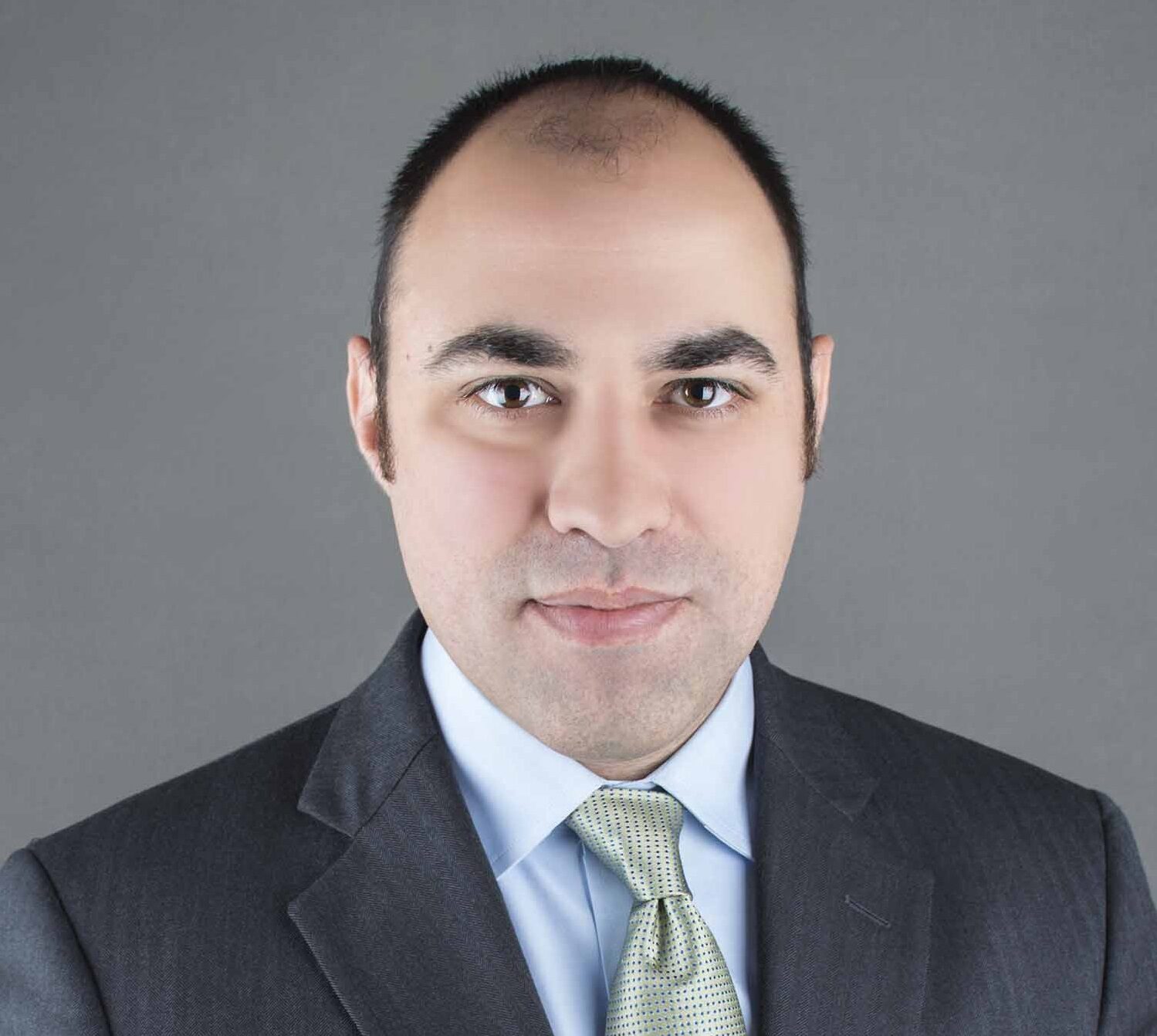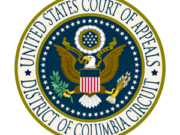April 30 was former Chairman and Commissioner Allen Dickerson’s last day at the FEC. Serving as a commissioner on the Federal Election Commission (FEC) is truly a thankless job. The pay is low—Allen took a pay cut from his position as Legal Director here at the Institute for Free Speech.—and public criticism is often high.
Now that he has completed his term of office, the nation owes Allen a hearty thank you for his service. It’s not the first time Allen selflessly served our country. He has served as an officer and, now, a Major in the U.S. Army Reserve within the Judge Advocate General’s Corps for many years.
He joined the FEC on December 18, 2020, following his slim 49-47 confirmation by the U.S. Senate, filling an open Republican seat. He served as Vice Chair in 2021 and Chairman in 2022.
After publicly announcing his resignation at the April 30 FEC meeting, colleagues on the Commission and the staff shed tears. It was moving to watch, and it is a testament to both his character and effectiveness.
Commissioner Shana Broussard said, “Much has been accomplished, my colleague and friend. Much that has improved the efficiencies of this agency’s enforcement processes—a love of procedure that we both share. But more so has been accomplished to the benefit of our regulated community.”
Commissioner Dara Lindenbaum noted she often “strongly disagrees” with Allen’s positions, yet “I also very deeply respect his position—and more importantly, his willingness to engage, to discuss, and to really wrestle with ideas. Allen never avoided the hard conversations. He showed up, and he made us think.
“When he first joined the agency, there were a lot of assumptions about who he would be—maybe a rigid ideologue, maybe a regulatory saboteur. But if you ever saw Allen work, you know that wasn’t who he was. He was someone who truly tried to make the agency function, to protect it, and to make it better—even if that meant making decisions that were, yes, controversial, especially because they came from him.
“One of the best examples of that is the investigation policy. That policy—largely shaped through his negotiations with Commissioner Broussard—ultimately strengthened our enforcement process and left a lasting mark on how we do our work. It was thoughtful, rigorous, and most of all, useful.”
His Republican colleague, Commissioner James E “Trey” Trainor III, said Allen is “one of the finest campaign finance minds in the country … [he is]an outstanding writer, a keen strategist, and when necessary, a tough negotiator, but always a fair one. His legal acumen was matched by a tireless dedication to getting the job done right and not seeking credit… Allen’s approach to the law has always been both principled and practical and his presence on this Commission elevated the work of everyone around him. The American people were well served by his time in office.”
Working with and knowing Allen for as long as we have, we knew he would do a great job, and he did. He played a significant role in reinvigorating the agency, working with his colleagues on both sides of the aisle. He is a gentleman and a lawyer’s lawyer.
His character and similar qualities in most of his colleagues led to an era where the FEC performed as envisioned when Congress established the agency decades ago—effective, bipartisan work to enforce the law fairly and provide guidance to speakers.
As Allen reflected in his statement upon conclusion of his term, the Commission looked very different when he joined four years ago:
“Years of entrenchment and recrimination had badly hobbled this organization. The enforcement backlog numbered in the hundreds of matters, many imperiled by the statute of limitations. Regulatory efforts had lain dormant for a decade or longer. The FEC was refusing to show up in Federal court, or even explain why. Meanwhile, basic efforts to acknowledge binding decisions of the Supreme Court went nowhere as longserving commissioners played a delaying game rather than accept judicial losses. The commissioners had such difficulty agreeing on advisory opinions that the public largely stopped asking.”
Barnaby Zall, President of the Public Policy Legal Institute, aptly described Dickerson as “one of the best Commissioners in FEC history.” We join him in missing “his succinct, persuasive and insightful writings, his strength of purpose and understanding of the complex and difficult task set out by the organic statute and Constitution, and his ability to work with others across the aisle and outside the agency, with integrity, humor, and humility.”
No one keeps records of written statements by commissioners, but surely Allen must be near the top in statements per year. He wrote 203, and more may come in closed enforcement matters yet to be released. Most of these statements were on enforcement matters, and many provided the agency’s rationale for dismissing a complaint. All of them were thoughtful and carefully reasoned, and campaign finance nerds like us devoured them.
Working with his colleagues, Allen cleared out the backlog of enforcement matters that accumulated when the agency lacked the four commissioners needed to take most actions.
The Commission passed an Internet disclaimer regulation that had floundered on the regulatory docket for thirteen years and another long-delayed one on technological modernization. Most importantly, the Commission started appearing in court to defend its actions, protecting speaker respondents who would otherwise be collateral damage.
It also performed other cleanup work, such as finally adopting a new form for super PAC registrations.
Allen accomplished two largely unknown but vitally essential changes while working with his colleagues. One is titled “Agency Procedure Regarding Litigation Brought Pursuant to 52 U.S.C. 30109(a)(8).” Don’t let the dry title fool you. This crucial reform means that the FEC will never again get sued and then fail to inform the court or respondent to a complaint about what happened with the complaint. If you’re a speaker respondent, it’s hard to understate the importance of this procedure, which could save you years of stress and reduce your litigation costs.
The other is FEC Directive 74, “Investigations Conducted by the General Counsel; Enforcement Investigative Plans,” which took effect on November 1, 2023. Allen and Commissioner Broussard strongly believe in due process and together put in the hard work to hammer out what Commissioner Lindenbaum called the “investigation policy.” In lay terms, the policy ensures the commissioners are in charge of investigations, not the general counsel’s office, at least through 2027 and hopefully longer. As Allen and Commissioner Trainor stated, the directive “recognizes that the Commission cannot allow [the Office of General Counsel] to conduct openended investigations that reach beyond the legal theory adopted by the Commission. And it ensures that there is no ‘informal’ government action; OGC’s investigations must be conducted formally, pursuant to Commission approval and explicit limitations.”
Allen devoted much of his farewell remarks to elaborating on a warning that “the Commission we have built is not guaranteed to last.” He’s right, and we hope Congress and President Trump will heed his words. They should work together to quickly restore the Commission to its full complement of six commissioners. Then they should follow up by enacting most of the FEC’s unanimous legislative recommendations.
He also left future commissioners and those who criticize the agency with two vitally important thoughts:
Some of you may believe the problem is that the Commission deadlocks too often and enforces too seldom. I urge you to remember that the sincere bipartisan nature of our enforcement decisions is why, when the Commission does move forward, it does so credibly. Congress wisely created an agency that fails safe. There is no shortcut. The American people will not accept partisan enforcement of political rules, whether under the guise of “good government” litigation, or supposedly “nonpartisan” experts. Persuasion, not gamesmanship, is the only practical way forward.
Some of you may believe the problem is overenforcement, that the Commission itself is unconstitutional and that the Republic would be better off if it failed. I urge you to remember that the original sin of campaign finance regulation is not overbreadth, but vagueness. Sincere bipartisan interpretation of the rules, and a one-stop-shop for answers, is a powerful tool protecting political participation. This is why an evenly divided commission, led by a chair and vice chair elected in an orderly rotation between the parties, is crucial. There is no shortcut here either.
While his work at the Commission will be missed, he’s back in the private sector, and we’re sure he will continue his contributions to better government, the rule of law, and the First Amendment. His clients will be in good hands.
Thank you, Allen, for your service to the nation. We join you in thanking your now-former Democratic colleagues Shana Broussard and Dara Lindenbaum for working across the aisle to restore the agency’s effectiveness.














